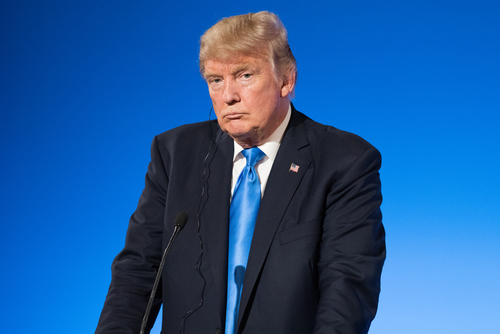North Korea, Venezuela among three countries added to new, more tailored travel ban

President Donald Trump/Shutterstock.com
The Trump administration on Sunday night announced restrictions on nationals from three additional countries, including North Korea, along with those from five out of six Muslim-majority countries on the president's original list.
Besides North Korea, the new countries on the list are Chad and Venezuela, though the travel ban for the South American country applies only to certain government officials and their family members, according to the president’s proclamation and fact sheets here and here. In addition, the proclamation says more scrutiny is recommended for nationals from Iraq, though it isn’t formally on the new travel ban list. The New York Times, the Washington Post and Politico have stories.
Countries from the old list that remain on the new version are Iran, Libya, Somalia, Syria and Yemen. Sudan, which was on the previous list, has been dropped.
The new ban applies indefinitely.
The new list was announced on the day President Donald Trump’s previous 90-day travel ban expired. The new plan was devised as a result of a policy review called for in the original travel ban. The new restrictions are based on whether the countries share information, including information about terrorists, and whether they have adequate security initiatives, including electronic passports to combat fraud.
The restrictions take effect Sunday as applied to foreign nationals already subject to suspension. The other restrictions take effect Oct. 18
The travel restrictions vary based on the country. The travel ban for Iran, for example, does not apply to nationals under valid student and exchange visitor visas, although those visitors will have to undergo additional screening. The ban for Somalia applies to immigrants; nonimmigrants will have to undergo enhanced screening.
Trump says in the proclamation that his approach is more tailored with regard to nonimmigrants when countries demonstrate mitigating factors, such as a willingness to cooperate, or when future cooperation appears likely.
It’s unclear how the new policy will affect a Supreme Court case, scheduled for argument on Oct. 10, that considers the six-country travel ban that was replaced Sunday. The Supreme Court had allowed that ban to take effect in June, except for those with a “a credible claim of a bona fide relationship” with a person or entity in the United States.



